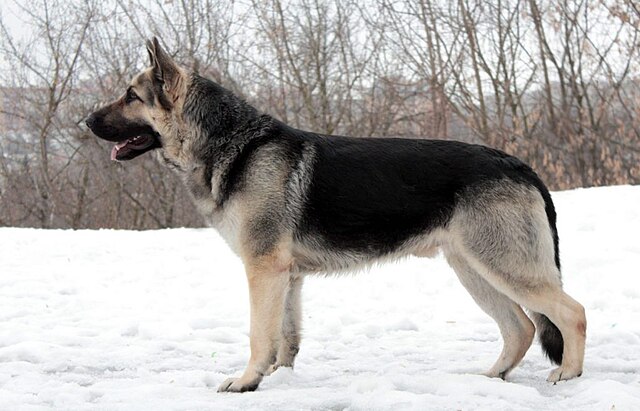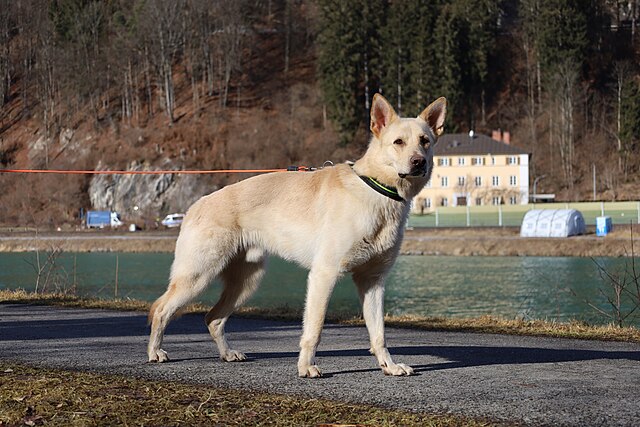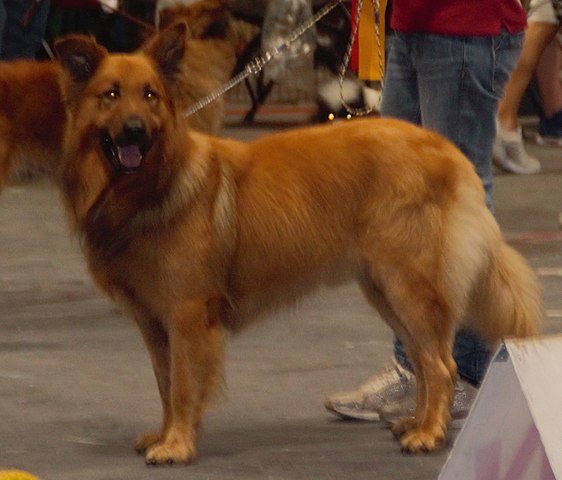The Portuguese Sheepdog (like most herding breeds) is energetic and agile. Bred to herd and guard flocks of animals while making sure nobody wanders away or gets hurt, he takes his job very seriously. He is built tough and rugged in order to perform his work and he has a lot of energy and stamina to go all day. For this reason, not only does he need a ton of exercise but he also requires a mental job to do as well. He does best with experienced dog owners. The breed is generally very healthy with dogs living 13-14 years. When health issues come up, the most likely problems include elbow and hip dysplasia, as well as eye diseases. Thankfully many members of this breed never develop anything serious and live extremely healthy and long lives without issue.
The medium-sized Portuguese Sheepdog can be cautious around strangers but is loyal to his family (including children and other dogs). When walked at night, he is extra-vigilant about making sure nobody threatens his owner. As such he makes a good guard dog. Most will only show aggression if their owner is actually being attacked – this breed is normally soft-tempered (albeit cautious) with strangers. When at home, he is keen to announce visitors although he may get carried away with his voice – the breed can be loud and is known to bark at just about any noise they hear.
Because of his monkey-like appearance and demeanor (the breed is often happy and free-spirited), the Portuguese Sheepdog is known in his home country as a “monkey dog”. Unfortunately, there are very few of these monkey dogs outside of Portugal and the breed is considered very rare. For prospective owners, they can be found in America, but it is more likely a puppy will need to be imported. Most overseas breeders prefer their puppies go to homes where they will have room to run and work – these are definitely not city apartment dogs! Many members of the breed actually prefer living outside where they can roam their (fenced) property, but will be calm indoors as long as given enough exercise.
The Portuguese Sheepdog tends to be an independent animal who can have a good time with or without his “people”. Luckily, this means he is not likely to suffer from separation anxiety but it should be stressed again that he needs regular activity. Portuguese Sheepdogs who aren’t given enough activities to do will find other ways to spend their time… and it probably won’t be things that make the owner happy. Keep in mind that this herding breed will try to herd whatever is around him regardless of how much exercise and work he is given – including small children.
Portuguese Sheepdogs are intelligent and easy to train. They tend to learn quickly as they are exceptionally work-oriented dogs. Some have a stubborn streak, however – particularly if the owner is easy to take advantage of. People who own dominant yet quick-witted herding breeds like this one must set down firm boundaries from the very beginning! With the right owner (one just as intelligent and motivated as the dog) – the breed can be a delight to train. Just make sure to stay consistent with the training schedule and provide ongoing lessons – these dogs will get bored without regular work.
The long coat of the Portuguese Sheepdog does require regular grooming if the owner prefers a clean, non-smelly dog. Despite the long length of their coats, they do not require as much grooming as one might expect, however. In fact, in their home country there are many shepherds who rarely even brush out the coats of working dogs. They claim that to do so compromises the harsh, protective texture. Take note – the breed’s long single coat is known to shed a moderate-high amount. They also tend to get food stuck in their beards and wet, drippy face furnishings after drinking.




